After over 60 years on records, cassettes and now downloads, the Pinocchio Storyteller album has managed to retain Cliff Edwards’ original 1957 narration as Jiminy Cricket.

Walt Disney’s Story of
PINOCCHIO
Told by Jiminy Cricket
Disneyland Storyteller ST-3905 (12” 33 1/3 RPM LP with Book)
Reissued in 1960 (ST-3905 / Magic Mirror Cover) and 1969 (ST-3905 / Going to School Cover)
Disneyrama LP Series ST-4905 (12” 33 1/3 RPM LP with Fold-Out Pop-Up Book)
Originally Released in October, 1957 (with Circle Design Cover). Album Executive Producer: Jimmy Johnson. Producer: Camarata. Musical Score: Paul J. Smith, Leigh Harline. Orchestrations: Paul J. Smith, Frederick Stark, Charles Wolcott. Music Supervision: Harry V. Lojewski. Scoring Mixer: Frederick Herbert. Engineer: George Charouhas. Running Time: 26 minutes.
Voices: Cliff Edwards (Jiminy Cricket / Narrator); Dickie Jones (Pinocchio); Walter Catlett (Honest John).
Songs: “When You Wish Upon a Star,” “Give a Little Whistle,” “Hi-Diddle-Dee-Dee (An Actor’s Life for Me),” “I’ve Got No Strings,” “Hi-Diddle-Dee-Dee (It’s Pleasure Isle for Me),” by Ned Washington, Leigh Harline.
Background Themes: “Little Wooden Head,” “Pinocchio Goes to School,” “Sea Horses,” “Turn on the Old Music Box” by Paul J. Smith, Leigh Harline. “The Whale Chase” by Leigh Harline and Edward Plumb.
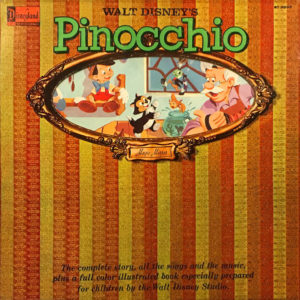 The Disneyland Storyteller LP record and book series underwent a variety of changes, from its roll-out in 1957 (just one year after Disney’s in-house record company started operation) to today. After producing musical soundtrack albums of several animated classics—at the time aimed at adults—Disneyland Records established the Storytellers to combine some of the music from those albums with narration aimed at children, who could look at full-color illustrations (many of them film stills) and simple texts as they listened, or enjoy the books and records separately.
The Disneyland Storyteller LP record and book series underwent a variety of changes, from its roll-out in 1957 (just one year after Disney’s in-house record company started operation) to today. After producing musical soundtrack albums of several animated classics—at the time aimed at adults—Disneyland Records established the Storytellers to combine some of the music from those albums with narration aimed at children, who could look at full-color illustrations (many of them film stills) and simple texts as they listened, or enjoy the books and records separately.
Several of the first narrators were chosen from the Mickey Mouse Club TV show, which was a year into its nationwide phenomenon. Mouseketalented Darlene Gillespie narrated in the role of Alice for the Alice in Wonderland Storyteller, the music for which she had recently recorded on the greatest record album ever made. Rising Mousekestar Annette Funicello narrated Snow White and the Seven Dwarfs, which we talked about in this Spin. One of the grownup Mouseketeers, Jimmie Dodd, brought his sincere, earnest personality to narrations for Bambi, Peter Pan and the live-action “True-Life Fantasy,” Perri.
Four other albums in the original mix featured character voices. For one of them, Ed Brophy seems to have returned to portray Timothy Mouse for Dumbo, even though there is no listed credit. The other albums were narrated by multi-faceted entertainer Cliff Edwards as Jiminy Cricket: Pinocchio, Cinderella, and A Day at Disneyland (with Walt Disney himself, which you can see more about in this Spin). The former Vaudeville superstar was also a Mickey Mouse Club regular through his appearances in such educational segments as “I’m No Fool” and “You Are a Human Animal” as well as on camera on “Guest Star Day.”
Edwards, whose career and fortune had waned since his heyday—when among other things, he was the first to perform “Singin’ in the Rain” on screen in the early talkie Hollywood Revue of 1929 — found a new life as the voice of Jiminy Cricket in Pinocchio. He was a favorite among Disney staffers who enlisted his services as Jiminy over several decades, as well as Golden Records. RCA hired him as both Jiminy and himself to narrate and sing during the postwar children’s record boom, and one of their projects was a 12-minute adaptation of Pinocchio.
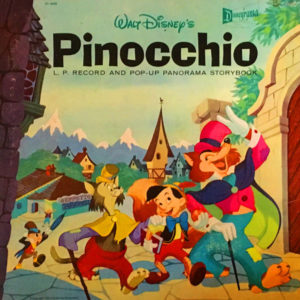 The Pinocchio Storyteller LP would mark the first time that Cliff Edwards would be heard narrating the story along with the actual soundtrack music. It was a simple production requiring Edwards to read a scripted narration alone, which was then interwoven with songs and selected underscore from the previously released Pinocchio soundtrack album, which we explored in this Spin.
The Pinocchio Storyteller LP would mark the first time that Cliff Edwards would be heard narrating the story along with the actual soundtrack music. It was a simple production requiring Edwards to read a scripted narration alone, which was then interwoven with songs and selected underscore from the previously released Pinocchio soundtrack album, which we explored in this Spin.
When the first wave of Storytellers were almost all replaced with the “Magic Mirror” series in 1960, Ginny Tyler re-recorded the narrations of Jimmie Dodd, Darlene Gillespie and Annette, plus Edwards’ narration of Cinderella, but the recordings of Dumbo and Pinocchio were unchanged. A Day at Disneyland was discontinued until 2015, when it was reissued for the D23 Expo and is now available through the Disney Music Emporium site.
In 1963, Dumbo and Pinocchio were repackaged as part of the “Disneyrama” series. Instead of a book, these records were combined with three pop-up dioramas. Pinocchio and Dumbo were released in their original recorded form once more in 1969, this time with covers showing Pinocchio going to school and Dumbo flying over an orange background. The interior Pinocchio film stills were replaced with large color drawings and the Disneyrama artwork for Dumbo was reconfigured into 3-D art for its book.
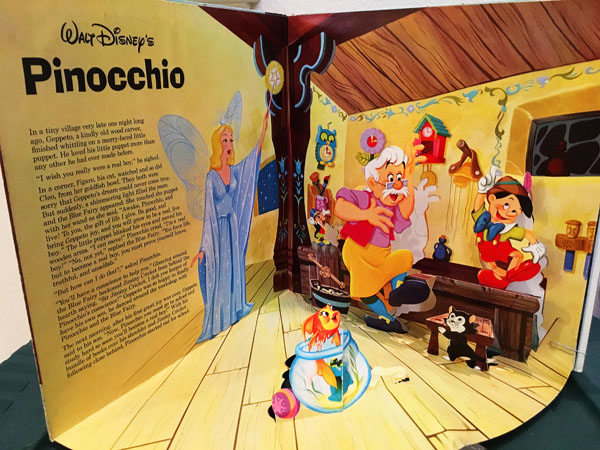

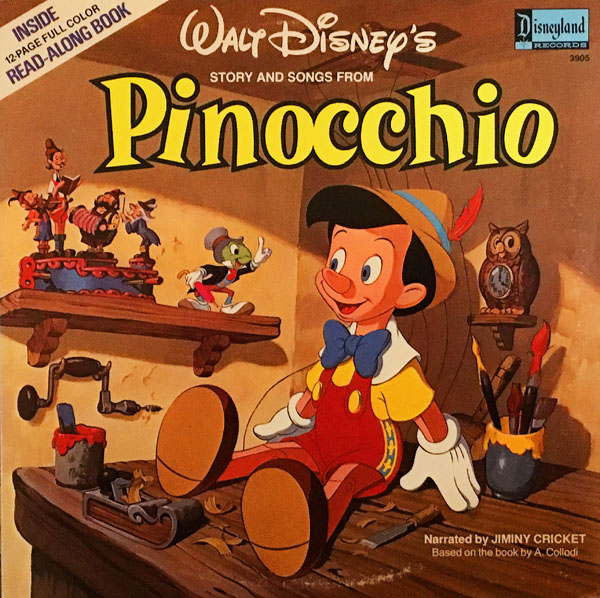
Walt Disney’s Story and Songs from
PINOCCHIO
Told by Jiminy Cricket
Disneyland Storyteller #3905 (12” 33 1/3 RPM LP, also on Disneyland & Fisher Price Cassette)
Reissued on iTunes and amazon for download only
Originally Released in 1978. Album Executive Producers: Jimmy Johnson, Gary Krisel. Producers: Jymn Magon, Camarata. Musical Score: Paul J. Smith, Leigh Harline. Orchestrations: Paul J. Smith, Frederick Stark, Charles Wolcott. Music Supervision: Harry V. Lojewski. Scoring Mixer: Frederick Herbert. Engineer: George Charouhas. Running Time: 30 minutes.
Voices: iff Edwards (Jiminy Cricket / Narrator); Dickie Jones (Pinocchio); Walter Catlett (Honest John); Evelyn Venable (The Blue Fairy); Christian Rub (Gepetto); Charles Judels (Stromboli, The Coachman); Frankie Darro (Lampwick). Choral Group includes Thurl Ravenscroft and The Hall Johnson Choir.
Songs: “When You Wish Upon a Star,” “Give a Little Whistle,” “Hi-Diddle-Dee-Dee (An Actor’s Life for Me),” “I’ve Got No Strings,” “Hi-Diddle-Dee-Dee (It’s Pleasure Isle for Me),” by Ned Washington, Leigh Harline.
Background Themes: “Little Wooden Head,” “Blue Fairy Theme,” “Pinocchio Goes to School,” “Sad Reunion”, “Lesson in Lies”, “Desolation Theme,” “Turn on the Old Music Box” by Paul J. Smith, Leigh Harline. “The Whale Chase” by Leigh Harline and Edward Plumb.
By the late ‘70s, after the original Disneyland Records team had moved on, many of the Storyteller albums in the classic series remained similar to their late ‘60s editions, but slowly they were either discontinued or revised. The Dumbo Storyteller remained the same recording until the end of vinyl in the ’80s, then was not reissued.
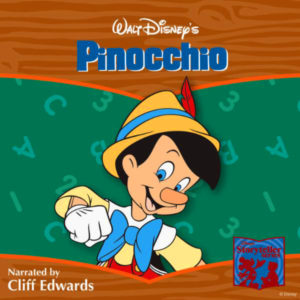 Pinocchio ended up in a class by itself. Disneyland Records Supervisor of Product Development Jymn Magon (you know—the producer of gold and platinum albums, reformatted read alongs and eventually story editor for Disney TV Animation), was able to obtain permission to use dialogue from the Pinocchio soundtrack for the first time on records. (This could not have been an easy task, as it was not an across-the-board thing for all Disney features. Cinderella, for example, had to be completely re-dramatized for its revised Storyteller).
Pinocchio ended up in a class by itself. Disneyland Records Supervisor of Product Development Jymn Magon (you know—the producer of gold and platinum albums, reformatted read alongs and eventually story editor for Disney TV Animation), was able to obtain permission to use dialogue from the Pinocchio soundtrack for the first time on records. (This could not have been an easy task, as it was not an across-the-board thing for all Disney features. Cinderella, for example, had to be completely re-dramatized for its revised Storyteller).
Using the 1957 Cliff Edwards narration, it was possible for Jiminy Cricket to tell the story in a way that had never before been possible in the history of records. Some of the narration was slightly trimmed and two lines were flipped—“when Pinoke didn’t come home” and “taken Pinoke to meet Stromboli.” In addition to a new cover design (including a “TM” next to the word “Storyteller” indicate that Disney had finally trademarked the product) a new interior book was created with art from Spain and text that followed the record for the first time.
In the style of Magon’s newer Storytellers (See The Rescuers in this Spin, Pete’s Dragon in this Spin), “When You Wish Upon a Star,” which dissolves into narration after the first chorus. But the availability of dialogue tracks did make a vocal version of “Little Wooden Head,” possible, a first for Disneyland Records.
This is the version that is currently downloadable on amazon and iTunes, making it the longest continuously available Storyteller retaining any of its original 1957 elements. (Please note that iTunes lists Hal Smith as narrator but the artwork correctly indicates Cliff Edwards.)
The Original 1957 Pinocchio Storyteller
Edwards’ narration is especially refreshing because it seems easy to separate the “off the page” performance from the “off the cuff.” Though the script reflects the speaking style of Edwards/Jiminy, there are moments suggesting his own embellishments and even delightful, human imperfections.


 GREG EHRBAR is a freelance writer/producer for television, advertising, books, theme parks and stage. Greg has worked on content for such studios as Disney, Warner and Universal, with some of Hollywood’s biggest stars. His numerous books include Mouse Tracks: The Story of Walt Disney Records (with Tim Hollis). Visit
GREG EHRBAR is a freelance writer/producer for television, advertising, books, theme parks and stage. Greg has worked on content for such studios as Disney, Warner and Universal, with some of Hollywood’s biggest stars. His numerous books include Mouse Tracks: The Story of Walt Disney Records (with Tim Hollis). Visit 

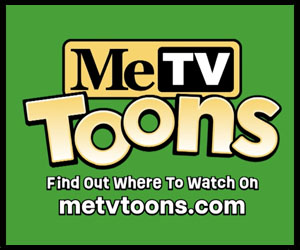







































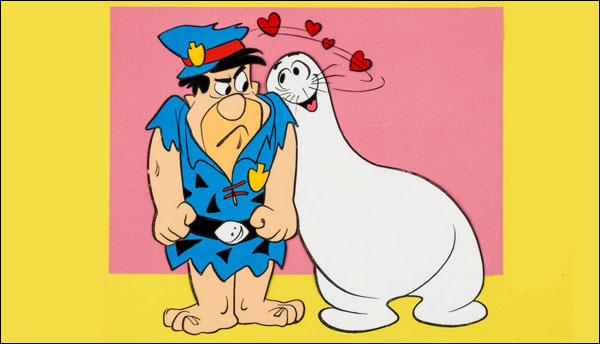
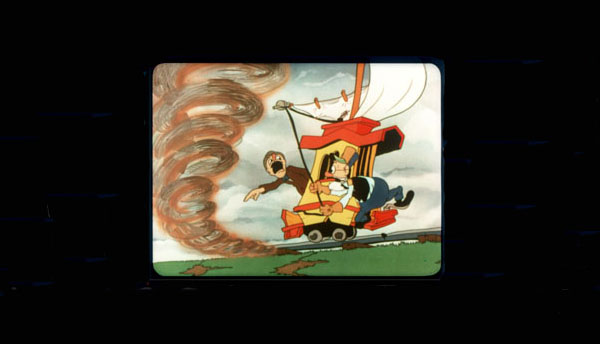










Jiminy’s hesitation before saying Gepetto’s name for the first time, as though trying to remember it, could be one of Edwards’ embellishments to the script. Also notice how his voice becomes almost evangelical when quoting the Blue Fairy’s lines. This same quality can be heard in the line of the song “Give a Little Whistle” where he says “Take the straight and narrow path.” Even though there is a clear separation between the soundtrack elements and the narration (and about 20 years apart), Edwards manages to speak in the same voice and style as when he originally performed the voice for the film. Another nice touch is the introduction of all of the villains at once, even though they enter the story at separate times, and the underscoring from the film’s soundtrack which is used for appropriate emphasis. Though I have listened to this version and the later “enhanced” version, the original recording seems more satisfying–maybe because Edwards’ narration in the Jiminy Cricket voice is sufficient to carry the story in an audio format.
Your point about the narration-only version being more satisfying is interesting because, back when the dialogue version was released in 1978, there was no home video and seemingly no chance of Pinocchio ever being able to be enjoyed at home at all, so the dialogue was a fantastic addition. But now that the film is readily available on DVD and Blu-ray, the entire Edwards narration actually becomes more of its own special treasure because it is Jiminy’s first hand account of the story.
I had most of the “Magic Mirror” series (and still do in a record cabinet) but this one was my favorite. I listened to it over and over, and have not heard this in almost 50 years. Needless to say, it brought make many memories. Thanks for posting it!